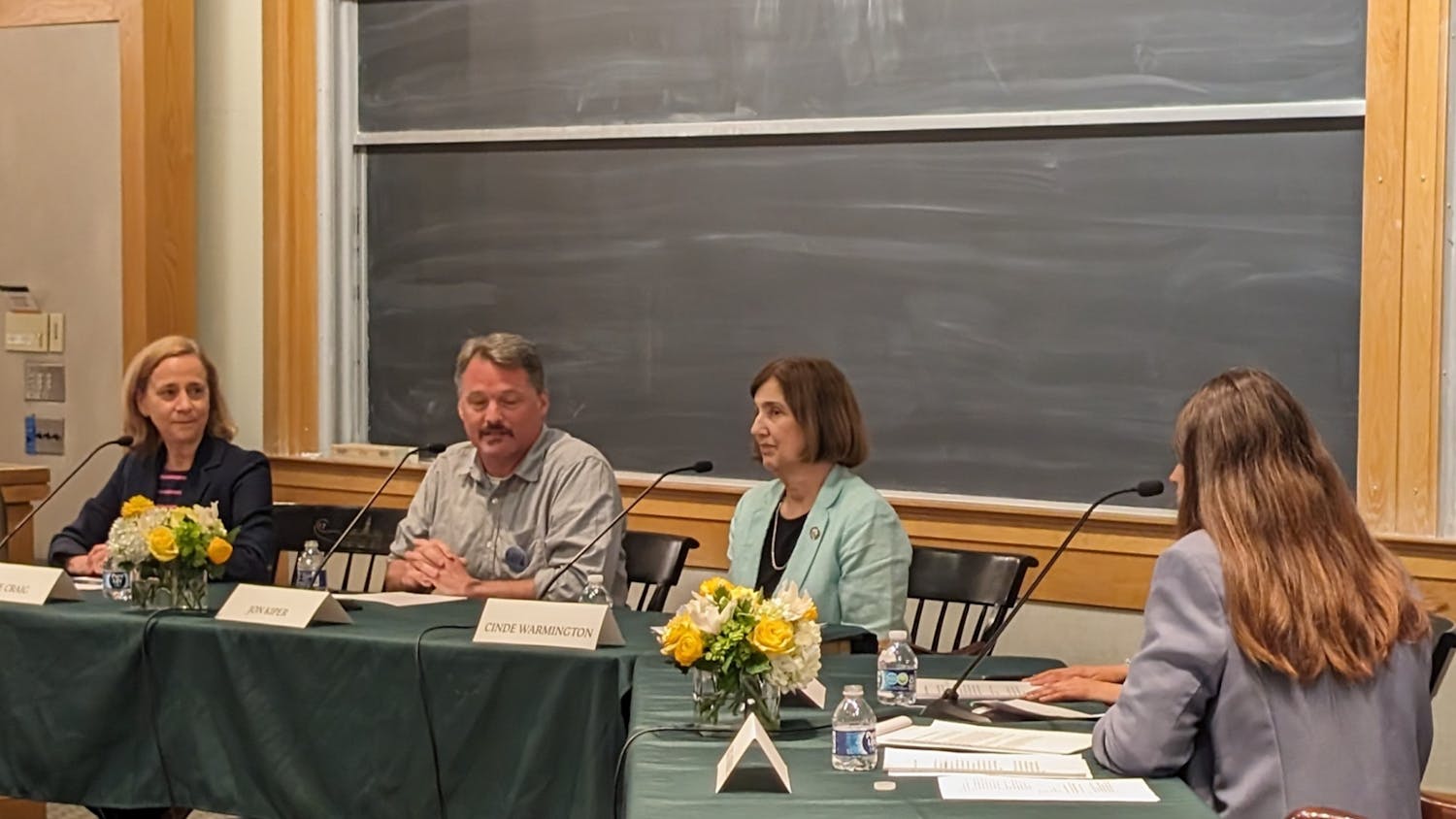These paradigm-rupturing technologies were the deliberate result of a strategy geared toward developing products to serve one billion people, Google senior vice president and chief financial officer Patrick Pichette said Thursday in a lecture at the Tuck School of Business.
Pichette urged the standing-only audience to take risks in developing dramatic new products. He spoke for just 20 minutes to allow for an ample question and answer session and described the importance of risk-taking in his career.
During the talk, Pichette pushed eyeglasses equipped with Google Glass technology onto his face. He scanned the lecture room and recorded a brief video without pushing a single button or touching a screen. Google Glass, in beta testing, has captured widespread public and media attention.
Rather than focus on the competition, Google's engineers take bold risks every day to develop products that "wow" consumers, Pichette said.
"If it's not going to be at least a billion people, it's probably not worth our time," Pichette said. "I ask myself the question, how is it really changing the world?'"
Speaking to business school students, Pichette said that "there is zero risk to experimentation, especially at this stage in your career."
Pichette cited his own career, when he worked as a logger in the Canadian woods before earning two graduate degrees. When a later project at the consulting firm McKinsey and Company, a consulting firm, required detailed knowledge of forestry economics, he held an advantage over the competition.
While Tuck students may hesitate to take the same risks as Google, flush with resources for experimentation, Google itself was started by "two guys in the garage" who took a "moonshoot," Pichette said.
Pichette's presentation was titled "Tipping the Scale: Google and the Future of Big Data," but he strayed from the topic to discuss of the philosophical framework of the Enlightenment.
This era's focus on testable facts and human optimism have "delivered amazing riches to humanity," he said.
Pichette advised the audience not to be restrained by their doubts.
"Probably the biggest secret in the world that I've found over time is that everyone is insecure," he said.
Pichette concluded by returning to the theme of bold thinking. He hopes for 50 or more companies as innovative as Google to rise to prominence.
"I think that there's space for so much more audacity," he said. "Jump in. Change the world."
Pichette said Apple and Twitter are "terrific" companies as well as "frenemies" that follow this innovative model.
Google does not avoid paying taxes but must seek maximum profitability for its shareholders, Pichette said, addressing the tax battles that have recently plagued the company.
When an audience member criticized the direction of Google Docs, now known as Google Drive, Pichette emphasized that cloud-based applications have progressed quickly.
"There is so much more to do," he said. "It's only the beginning."




